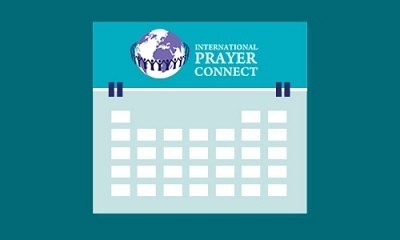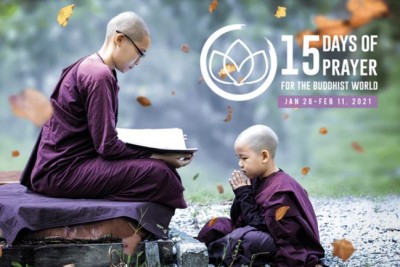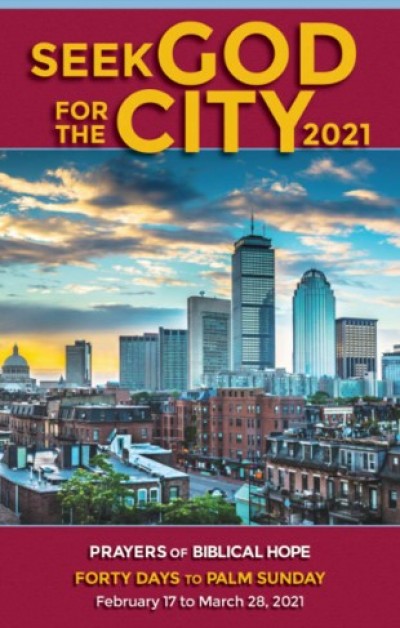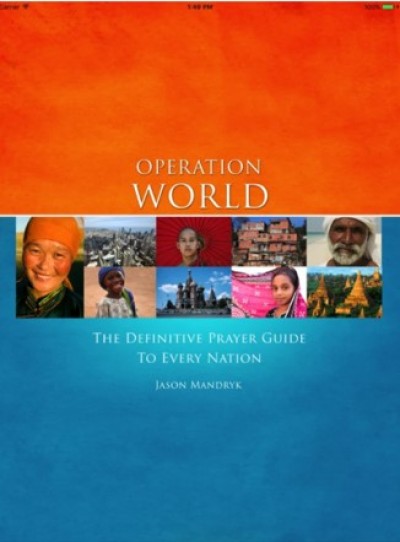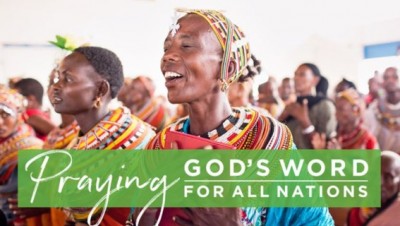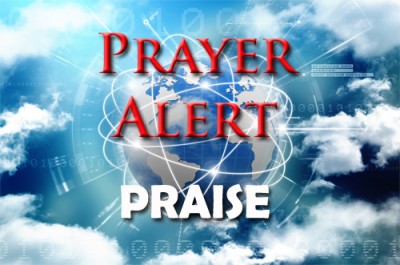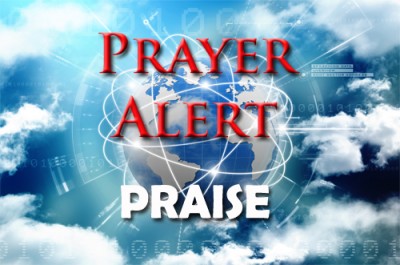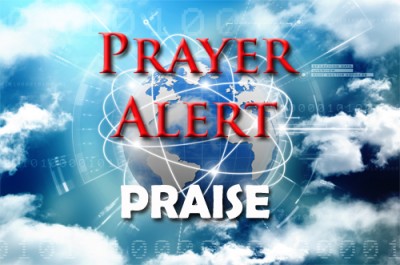Global Family 24/7 365 Online Prayer
https://www.globalfamily24-7prayer.org/
15 Days of Prayer for The Buddhist World - Jan 28th and Feb 11th, 2021.
https://worldprayerguides.org/15-days-of-prayer-for-the-buddhist-world/
Forty Days to Palm Sunday. (Feb 17 - March 28) "Seek God for the City"
https://www.worldchristian.com/product/sg21
The Jesus Fast (1 March – 9 April)
www.thejesusfast.global/
4th March - Honouring John Robb
Email: This email address is being protected from spambots. You need JavaScript enabled to view it.
10 Days of Praise & Prayer (13 – 22 May 2021)
www.10days.net
Movement for African National Initiatives – Abidjan, Ivory Coast, 8-12 March 2021
https://maniafrica.com/category/prayers/
World Prayer Together (1st May)
www.worldprayertogether.com
The March for Jesus (22 May 2021)
www.themarchforjesus.org
Global Day of Prayer & broadcast (including commissioning to GO) (23 May 2021)
www.globalvoiceofprayer.com/global-day-of-prayer/
GO 21 / Global Outreach Day (29 May 2021)
www.go2020.world/en/go21
GO Decade update (2020 – 2030)
www.go2020.world/en/decade
Hope Movement – 90 Days of Hope / Global Day of Hope (June – August 2021)
www.go2020.world/en/go2020continues
 UPRising Events Calendar
UPRising Events Calendar
GLOBAL UPRISING Manila, Philippines, Nov 2021
https://www.facebook.com/UPRISINGPhilippines/
The annual Buddhist World Prayer Focus is calling Christians and churches worldwide to take 15 days to learn about and pray for our world’s Buddhist friends between Jan 28th and Feb 11th, 2021.
The informative prayer guide booklets will help Christians to know how to pray for the people(s) growing up within this major and truly diverse world religion.
We recognize that Buddhism is an extraordinarily complex and often confusing worldview. At the same time, as Christians, we long that all the world’s people(s) will have an opportunity to freely see, hear and understand the grace of God incarnated in Jesus Christ.
To this end we inform ourselves, pray for and want to support opportunities to make that grace known also within the world’s Asian Communities.
The guide is available in these languages: English, Spanish, Portuguese, Simplified Chinese, Arabic, Hindi, Russian, German, French, Thai, Korean and Vietnamese
Get your copy of the 15 Days Buddhist World Prayer Guide now and join this global movement!
Guides available here: https://worldprayerguides.org/15-days-of-prayer-for-the-buddhist-world/
This is an annual 40-Day call to prayer that provides a way to pray God's purposes for our cities with prayers of hope from scripture.
The prayers in the Seek God 64-page, full color prayer guide booklet will lift our prayers beyond our own concerns. As we seek God's face, we will ask Him to do things on a city-size scale--to bring spiritual awakening to our communities.
The booklet contains newly written topics and prayers to help unite and focus prayer through the 40 days leading to Palm Sunday. This booklet is a proven resource that unites and encourages churches in persistent prayer for breakthroughs in their communities. Quantity discounts make it possible to equip many in your church or ministry.
Some helpful features of Seek God For The City 2021
- Strengthens what you are already doing. No complicated program to organize or meetings to schedule.
- Unites prayer throughout your church. An attractive, easy-to-use tool that can help unite prayers between many churches throughout an entire community.
- Lifts prayer from private or trivial matters. Helps your people learn to pray for what matters most by directing attention toward what God is doing in the lives of people throughout your community.
- Builds the confidence of everyday believers to help them pray with clarity, authority and relevance as they learn to pray in keeping with scripture. Involves everyone in your church family, not just a “prayerful elite.”
- Opens a great way to pray toward Easter. For those of liturgical streams, it augments the Lenten season with a marvellous blend of repentance and intercessory hope. Those of other streams find that it lifts attention toward Christ’s visitation at Palm Sunday. The calendar concludes on Palm Sunday, leaving everyone prepared for Easter week without crowding the schedule with extra activity.
Order it here: https://www.worldchristian.com/product/sg21
Want to join the global prayer movement? Operation World (OW), the definitive global prayer handbook, has been used by more than a million Christians to pray for the nations.
Now as a mobile app you can receive reminders to pray for the “country of the day,” research statistics on each country and read the in-depth prayer request and praise reports given for each country of the world.
OW is widely regarded as the definitive volume of prayer information about the world and is the recipient of the ECPA Gold Medallion Award for Excellence in Evangelical Christian Literature.
Download on iOs: https://apps.apple.com/us/app/operation-world/id1181609244
Download on Google Play: https://play.google.com/store/apps/details?id=org.missionaldigerati.operationworld&hl=en&gl=US
One of IPC’s key partners, Seed Company, has provided a new interactive prayer resource for you!
Learn 5 prayer habits to help you pray effectively for Bible translation. This 5-day devotional will enrich your spiritual walk and impact eternity through your prayers.
In what ways has the Bible changed your life? When life hits us hard, we find direction and solace in Scripture.
But what if the Bible was not in your language? That’s the reality for over 1 billion people today.
Join this 5-day plan where you can partner your Scripture reading with simple and effective ways to pray for people without the Bible.
It’s available in the YOU Version Bible App – or HERE
Cocaine discovered in bananas at Southampton
28 Jan 2021Cocaine worth £76 million was discovered in a shipment of bananas by officers during a routine inspection at Southampton. The class A drugs, weighing almost a ton, were placed in the cargo in Colombia and bound for Belgium. Home secretary Priti Patel said, ‘This was drug-smuggling on an industrial scale’. She is delighted that Border Force prevented such dangerous goods from reaching our streets to devastate communities, line the pockets of criminals, and ruin young lives across the country. On the same day as the cocaine discovery a gangster hit squad was jailed for dousing a rival drug dealer in petrol, setting him on fire, and leaving him to burn to death in his own flat. See
USA: Christian / Jewish unity
28 Jan 2021Evangelical Christians and Orthodox Jews in Washington have united to offer their sacred spaces for vaccine distribution to assist government and private companies to combat the pandemic. Walter Kim, of the National Association of Evangelicals, and Rabbi Moshe Hauer, of the Orthodox Union, stated, ‘Anyone in need of vaccination, whether or not they are members of our congregations or of our neighborhoods, is welcome.’ They offered to help with coordinating appointments and providing the medically trained volunteers to administer the shots, as well as spreading awareness to our communities about the importance of vaccination. Hauer said that everything about his faith compels him to contribute to the historic vaccination effort. His tradition teaches that not only is life the greatest gift from God, but it is an obligation to care for the well-being of others.
His mother wondered why his face was so shiny
28 Jan 2021‘The Iranian media, schools, everything you see and hear is Islamic’, said Ramin Parsa. ‘They brainwash you. We had no magazines or books. We saw caricatures of Israeli soldiers killing Palestinian babies. They sowed hatred in our hearts.’ Ramin went to the mosque every morning to pray. Every morning at school, they shouted, ‘Death to Israel! Death to America!’ Although it is illegal, every house has a satellite dish - an alternative to non-stop religious propaganda on government channels. On the Trinity channel he heard about Jesus. Ramin didn’t immediately believe. ‘If you give Jesus your heart, he will change your life. He loves you,’ the man was saying. ‘He died for you and rose again from the dead.’ Then Ramin relented. Asking to be forgiven, he started weeping. He felt God move in his body, providing heat and warmth. He rushed to see his mother, ‘Why is your face so shiny?’ she asked, bewildered.
